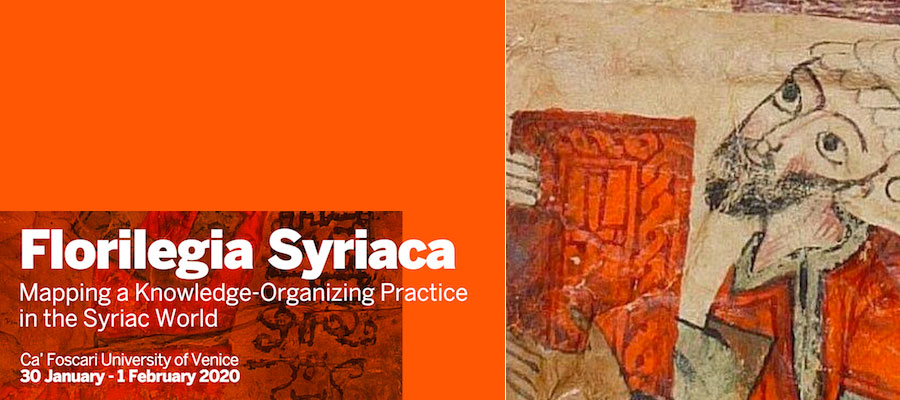Florilegia Syriaca: Mapping a Knowledge-Organizing Practice in the Syriac World, Ca’ Foscari University of Venice, January 30–February 1, 2020
The conference Florilegia Syriaca, Mapping a Knowledge-Organizing Practice in the Syriac World will be held at Ca’ Foscari University of Venice on January 30–February 1, 2020. The conference is organized by the European Research Council (ERC) funded project Florilegia Syriaca. The Intercultural Dissemination of Greek Christian Thought in Syriac and Arabic in the First Millennium CE (FLOS).
FLOS focuses on the metamorphoses of Greek Christian thought in Syriac (Aramaic) and Arabic in Late Antiquity, within the timeframe of the first millennium CE. Syriac Christianity was a pivotal mediator of culture in the Late Antique epistemic space, but is little-known today. FLOS aims to bring to light for the first time a body of highly relevant Syriac and Christian Arabic sources that have hardly ever been studied before. At the end of the millennium, in Islamic-ruled Syria, Mesopotamia, and Iran, Syriac Christians strived to define their religious identity. One of their strategies was the production of florilegia, i.e. anthologies that they used to excerpt and reinvent the patristic canon, a corpus of Greek Christian works of the 2nd–6th centuries shared by European and Middle Eastern Christian cultures. A Greco-centric bias has prevented scholars from viewing these florilegia as laboratories of cultural creativity. FLOS will reverse the state of the art through two groundbreaking endeavours: 1) open-access digital editions of a set of Syriac florilegia of the 8th–10th centuries, and 2) a study of many neglected writings of Syriac and Christian Arabic authors of the 8th–11th centuries.
